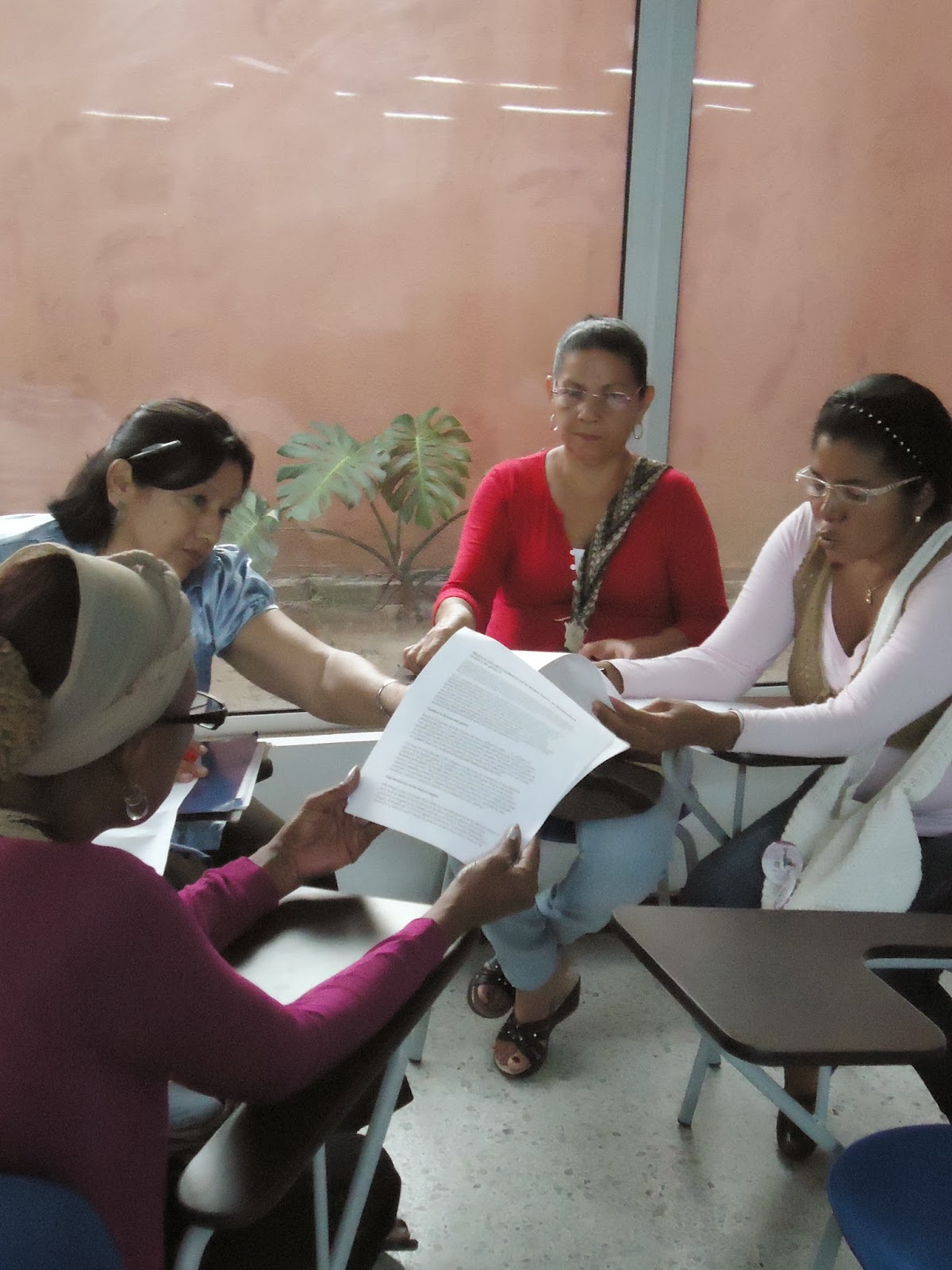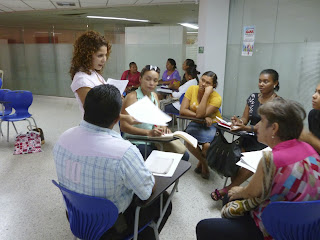 Wednesday,
November 20th, UNDP Cesar and I held the final gender workshop and graduation ceremony here in Valledupar Colombia.
It was an especially important day, since 33 of the participants would be
receiving their certificates from UNDP for having attended these workshops in women´s social and political participation. We started off this final gender
workshop with a review of the entire 8 week course, including the major themes we´ve
discussed throughout the course. Some of these included suffragist movements from around
the world, Indigenous and Afro-Latina women´s movements, physical and sexual
violence against women, women´s experiences of internal and armed conflicts,
mothers and grandmothers as political and social activists, and women´s sexual
and reproductive rights.
Wednesday,
November 20th, UNDP Cesar and I held the final gender workshop and graduation ceremony here in Valledupar Colombia.
It was an especially important day, since 33 of the participants would be
receiving their certificates from UNDP for having attended these workshops in women´s social and political participation. We started off this final gender
workshop with a review of the entire 8 week course, including the major themes we´ve
discussed throughout the course. Some of these included suffragist movements from around
the world, Indigenous and Afro-Latina women´s movements, physical and sexual
violence against women, women´s experiences of internal and armed conflicts,
mothers and grandmothers as political and social activists, and women´s sexual
and reproductive rights.
For this final afternoon together, we celebrated big time. Delicious food and cake, music and dancing, and many kind words and motivating comments from so many who have attended these workshops over the past two and a half months. The UNDP Cesar Coordinator came to make a speech and congratulate all of the participants, and my partner Simon and I surprised everyone with a video presentation of the entire workshop series! It was so much fun to see the excitement and energy when they saw themselves ‘up on the big screen’. The video presentation was 12 minutes long, but we´ve also created a shorter 5 minute version in both Spanish and English. Feel free to check out these awesome videos in Spanish here and in English here!


Monday,
November 25th, the week following our final gender workshop and graduation ceremony, was the UN sanctioned International Day for the Elimination of Violence Against Women and Girls. In comemoration of this international day of awareness and action, a local human rights organization, Red de Voceras (the Network of Women´s Voices) organized an event in Valledupar to remember the victims of gender violence in Colombia, and especially those in the Cesar region. We set up memorial plaques in one of Valledupar´s main plaza´s. Each plaque bared the name of women and girls in Colombia who were killed due to gender violence over the past two years. Placed in front of each memorial plaque was a woman or girls´ shoe, symbolizing the life and presence of each missing woman and girl. Some victims were as young as two years old when they died, whereas others were in their seventies and eighties when they were killed. This diversity in age also points to how wide spread violence against women and femicide trully is. It was a powerful display and brought many to reflect upon the importance of bringing attention and action to eliminating this international human rights abuse on women and girls.


The event also consisted of speeches from two members of Women´s Voices. They both spoke to the importance of paying tribute to the victims of gender violence, as well as the need to take action- to get involved in our communities and to participate politically in order to erradicate all forms of violence, at both local and global levels. Two guest performers were also part of Monday evening´s event. The first was a rapper called Ahiman from Cucuta Colombia who is part of a collective of young performing artists who address issues of violence against women- an absolutely amazing performance that happened to also attract the attention of a number of young boys who were hanging out in the plaza. It was great to listen to rap lyrics that speak against violence and gender descrimination. Here´s one of his bands songs you can check out via YouTube here!
 We also had the privilege of one of Valledupar´s local artists, Ada Ramos, perform a few songs. She really brought the audience to life with her powerful voice and energy, singing about womens´strength and resiliance. You can also check out some of her performances here.
We also had the privilege of one of Valledupar´s local artists, Ada Ramos, perform a few songs. She really brought the audience to life with her powerful voice and energy, singing about womens´strength and resiliance. You can also check out some of her performances here. The event felt like a perfect and very special way to begin wrapping up my time in Valledupar, especially considering so much of my work here has been on issues of violence against women and working to enhance women´s political participation. It´s hard to beleive it is all coming to a close now, after six intense months in Colombia. Although it has been a challenging experience at times, many strong relationships have been made, and together we have accomplished so much. I feel honoured to have had the opportunity to learn so much and contribute what I could to the development of gender equity and peacebuilding in the Cesar region of Colombia.
My partner Simon and I will be embarking on a new adventure in just a few days, and to summarize some of our travel experiences in Colombia we´ve made a short video which you can check out here! To start off the next chapter right, we´ll be meeting up with our parents on the coast of Peru to celebrate Christmas and the New Year, yahoo! It´s time to see what this next chapter has in store...!












































